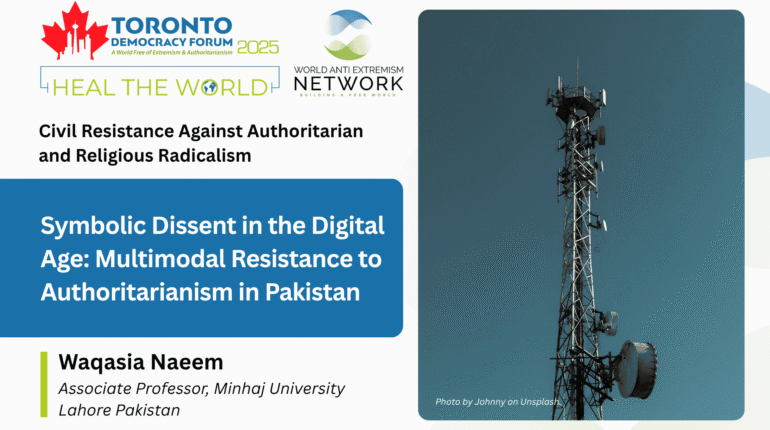
In an era where traditional forms of political expression in Pakistan face mounting restrictions, digital spaces have become vital arenas for dissent and civic engagement. This paper is written by Dr. Waqasia Naeem, in which she explores how citizens, particularly youth and activists, use social media platforms like X (formerly Twitter), Facebook, TikTok, and Instagram to resist authoritarian control through creative, non-violent expression, and also reflects on how AI-driven algorithms and digital affordances such as anonymity and virality are reshaping the dynamics of dissent.
By linking symbolic expression with civic resistance, this research offers timely insights into how digital creativity sustains democratic participation in constrained political environments, serving as an engaging read for anyone interested in how technology, art, and activism intersect in Pakistan’s struggle for free expression.
About the authors

Dr. Waqasia Naeem is an accomplished linguist, discourse analyst, and English language teacher with over sixteen years of academic and research experience. She holds a PhD in Critical Discourse Analysis (CDA), and her research explores the intersection of language, power, and ideology. Her scholarly expertise spans peace and war discourses, hate and discrimination, digital media communication, and political discourse. Dr. Naeem has presented her research at several international conferences and has published in reputable national and international journals. Her work draws on multidisciplinary frameworks, integrating Wodak’s Discourse-Historical Approach, van Dijk’s Social Cognition Theory, and Systemic Functional Linguistics to examine how discourse constructs, legitimates, and challenges power relations in society.

